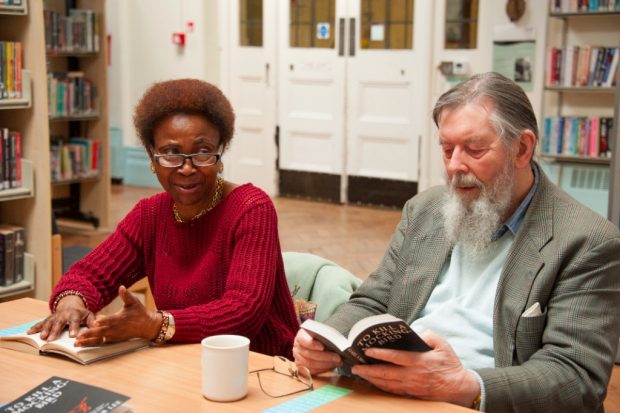
[Editor’s note: Guest post written by Lesley Dee, Susan Hart and Cathy Jennings, following publication of their research into reading groups]
‘I hope the powers-that-be that read the report understand the importance of the work that we do.’ A reading group facilitator.
What part do reading groups play in the services that libraries provide for their communities? How central is their role and what do libraries do to foster them? Two years ago, we set out to explore these questions, spurred on by our own experience as members of a reading group and our awareness of the huge growth in reading groups that had taken place in recent years.
In June last year, we described our interim findings . We related these to three of the 'purposes' for libraries set out in the Libraries Deliver consultation document: to promote reading and literacy, to improve health and well being, and to foster communities. We expressed surprise at that time that reading groups were not mentioned in the document, since our research so far had convinced us that reading groups should be an integral part of any strategy for future development. [Editor's note: In the final document, Outcome 2 on Increased reading and literacy includes this paragraph: Reading can also be a springboard for communal activities, through reading-based events and reading groups. These heighten enjoyment in reading and also bring people together into a mutually supportive group, stimulating their interest in literature and also social interaction. We’d like to see support for and participation in these increasing.]

We have now published our full report, giving voice to all those we talked to: national experts, library managers, reading group facilitators and reading group members in the five library services we visited. We met inspiring individuals who believe passionately in the power of literature and reading to make a real difference to the quality of people's lives. In spite of the many challenges which library services face, they are continuing to support reading groups and, in so doing, bring immense value to their local communities.
Support for existing groups
The study opened our eyes to all that libraries do to support and nurture their existing groups. We learnt about the work that goes on behind the scenes, as well as the important part that facilitators play in building a friendly and supportive atmosphere that enables group discussions.
Although we heard of many different ways of facilitating a group, common to all were the challenges (and rewards) of leading in a way that was empowering for every participant. As a facilitator said, 'done right, it fulfils a basic human need for interaction and (...) being heard'.
Reaching out into communities
We were impressed by the many creative and innovative ways in which the library services we visited were attempting to engage members of their local communities who did not use libraries and who did not usually read for pleasure. As a senior librarian explained, ‘I think it's not one of those things you can just sit in a library or a school and really deliver everything. If you're passionate about engagement, I think the days of 'you come to us' are gone. I think we have to go out to them.’
Strategies mentioned by those we talked to included:
- establishing reading groups in a range of locations such as places of work, care homes, doctors' surgeries and prisons
- broadening the range of groups on offer to appeal to different people, for example father and son groups, graphic novel reading groups for younger people, young mothers' groups
- setting up Shared Reading groups (where poems, short stories and novels are read aloud in the meeting) to encourage inclusion of less confident readers
- building partnerships, for example with local community groups, adult health and social care, arts organisations, local colleges and charitable groups, to sustain and extend what libraries could do alone.
Strengthening communities
Talking to all the people involved in the various services visited helped us to appreciate, more broadly than before, why reading groups can and should occupy a pivotal place in libraries' work. They not only have the potential to become powerful, supportive communities in their own right. They also have an important contribution to make to social inclusion and connectedness, to people's identification with, and sense of belonging to, their local communities.
As a library assistant said:
‘[Reading groups] are really vital, this is really important stuff. This is what communities are about. There used to be more opportunities for people to get together in lots of different ways, in cinemas, in libraries, in pubs. And all that's going, the way I see it, and the service I'm part of is keeping that alive.’
--------------------------------------------------
Please note, this is a guest blog. Views expressed here do not necessarily represent the views of DCMS or the Libraries Taskforce